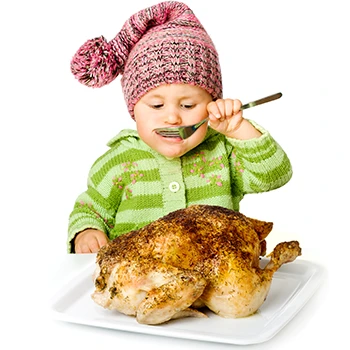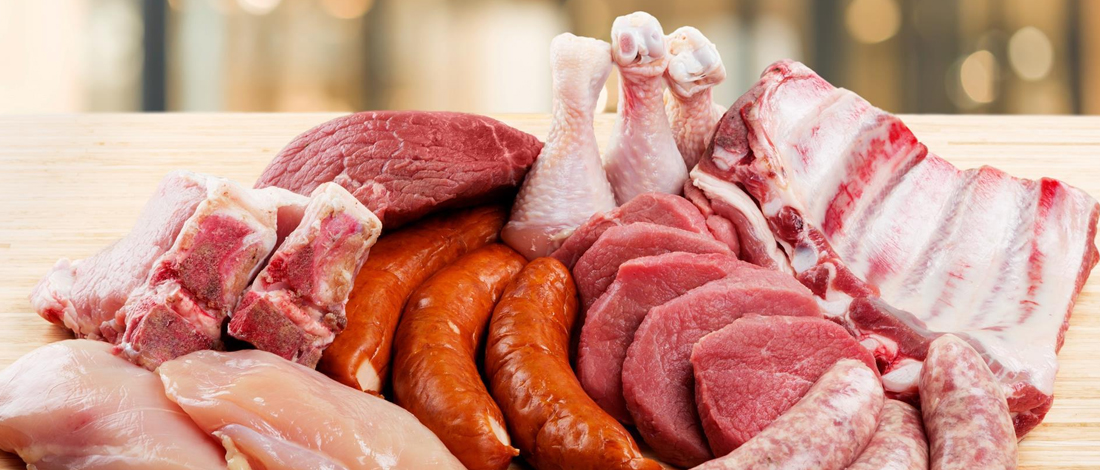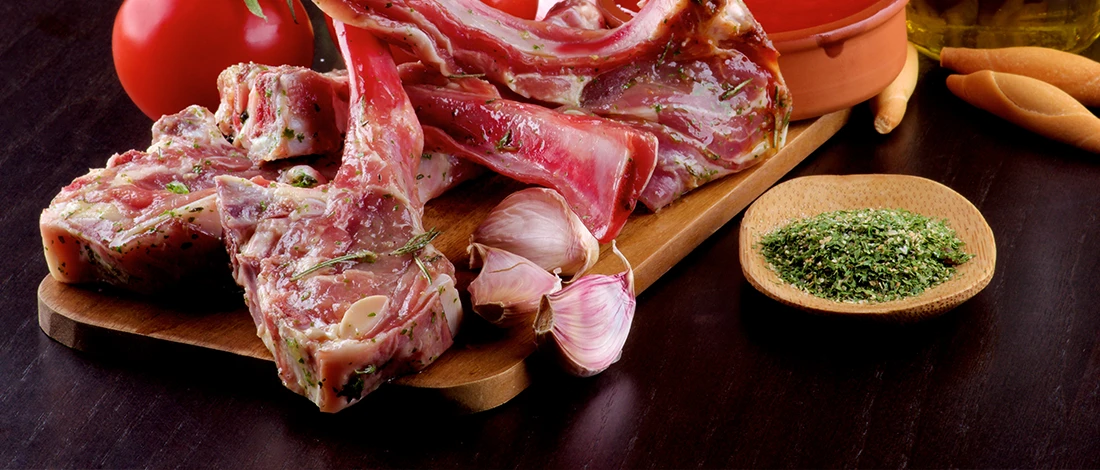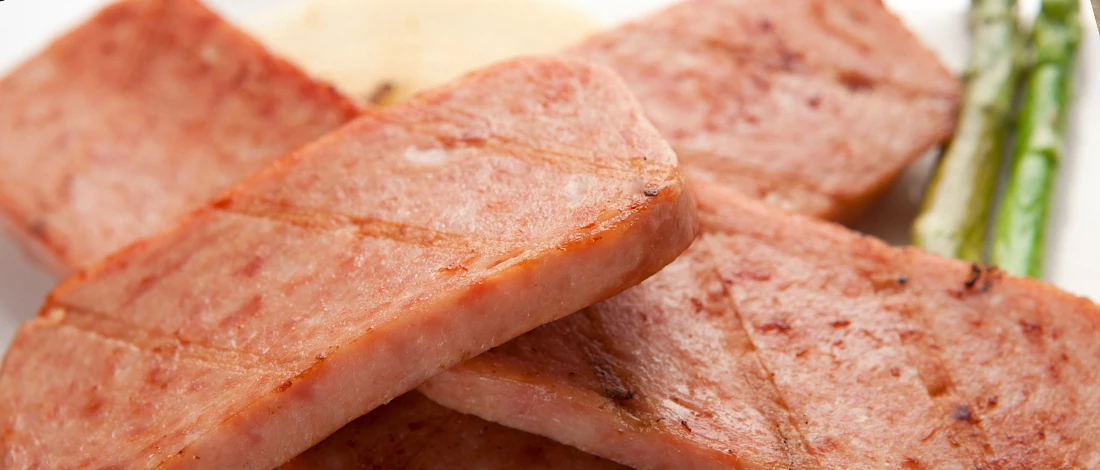As a ten-year carnivore diet follower, I've been wondering if it's okay to introduce meat to my seven-month-old baby to cover their protein intake.
Before making any uninformed decision, I sought expert advice from my pediatrician friend to find the proper time and technique to introduce meat to babies.
If you're a concerned parent like me, here's everything you need to know about meat as an early diet for your baby.
Quick Summary
- Babies can eat meat at around six months old after introducing solid foods.
- Meat is healthy for babies because it contains nutrients like zinc, iron, and vitamin B.
- When preparing meat for babies, it's essential to keep it moist and tender to allow for easier chewing for the baby.
When Can Babies Eat Meat?

Babies can eat meat at around six months old after introducing solid foods.
Since they include essential minerals like iron and zinc, pediatricians advise parents to introduce meals like meat and poultry and fortified baby cereal and beans as early as possible [1].
Also, if you're following baby-led weaning, you should introduce meat once your child has reached the age of six months and they are more adept at managing finger foods and self-feeding.
Boiled down, baby-led weaning entails forgoing puree feedings in favor of allowing infants to eat finger foods or shredded meat from an early age—roughly six months.
Additionally, this approach will enable infants to experiment with various meals' colors, flavors, textures, and scents.
"Baby-led weaning can help improve hand-eye coordination, chewing abilities, dexterity, and wholesome eating habits."
- Kimberly Churbock, MD & Pediatrician
Babies and Meat’s Health Benefits

Meat is healthy for babies and here's why:
1. Meat Is a Nutrients Powerhouse
Beef has a unique combination of nutrients, including high-quality protein, iron, zinc, choline, selenium, and vitamins B6 and B12.
All these are necessary for newborn and child growth and development. Children also require iron and zinc for proper development, cognition, behavior, and growth [2].
Read More: Nutrients Only Found in Meat
2. Powerful Bodies and Brains
Eating beef as a supplemental first food promotes healthy growth in newborns without causing excessive weight gain.
It also promotes brain health and performance in children by providing minerals such as iron and zinc, which our systems absorb more easily from meat than vegetables [3].
3. A Strong Immune System
Parents concerned about their children being ill should know that iron and zinc-rich meals, such as beef, promote the growth of beneficial bacteria in an infant's stomach, which improves immune function [4].
4. Developing a Healthy Palate
Introducing a range of flavors and textures, including meats such as beef and chicken, helps newborns accept the taste of healthful meals as they develop. Feeding meat to babies allows them to develop a love for meat at a young age, and they become healthy protein plate lovers in the future.
Best Meats For Babies
The best meats to serve babies include:
- Beef
- Lamb
- Chicken
- Turkey
- Fish
When it comes to ensuring the quality of food for your child, it is crucial to consider reliable meat delivery services. Opting for reputable providers that prioritize high-quality and responsibly sourced meats, such as ButcherBox, can provide peace of mind and help maintain the integrity of the food you serve to your child.
I recommend buying organic, pasture-raised, and grass-fed beef and other meat that is lower in saturated fat and higher in Omega 3s and antioxidants than standard steak [5].
You should also flavor the meat at home with homemade organic spices or spice blends rather than using store-bought curries, rubs, or sauces, which are rich in salt and sugar.
Ways to Serve Meat for Babies

Here are four easy ways to serve meat for your baby:
- Ground beef sauce: Offering ground beef in a sauce to infants is the simplest place to start introducing meat to your baby’s diet. We recommend selecting meat with a larger fat level as it's incredibly soft, moist, and crumbly. You can also serve any ground meat in its own juices or a sauce, such as pasta or tomato sauce.
- Meat in stew: You may cook any soup or stew meat, then filter the meat, vegetables, grains, etc., from the broth and feed your infant the tender bits of meat! It will be moist from the broth it has been sitting in for a while, and simmering for an extended period makes it tender.
- Grilled meat: Although keeping the meat juicy and tender while grilling is more difficult, it is certainly possible. Cook chicken breasts on the grill while they are covered with aluminum foil. This will prevent the meat from overcooking by keeping all the steam and moisture on the meat rather than evaporating into the air. To keep this finger food moister, serve with bottled breast milk or give your baby a second dip and help them out with dipping.
Tips for Serving Meat to Avoid Choking

Serving chunks of food to babies can increase their risk of choking. Here are tips for serving meat to avoid the choking hazard.
1. Keep It Moist
Keep as much of the meat's juice and fat as possible during cooking. In addition to keeping it moist, the fat is good for your developing child.
I advise cooking chicken thighs, breasts, and drumsticks with the skin on because the fat from the skin helps the meat stay moist. But before giving it to your baby, I recommend removing the skin.
2. Keep It Tender
Choosing more tender cuts of meat, such as a slice of pork or beef loin, is another option when serving meat to your baby.
Once you have your tender meat, tenderize it further by pounding directly or marinating it in acidic vinegar solutions for a few hours before cooking. Ensure you rinse well to rid of excess vinegar solution.
3. Puree
If you are purée feeding, cooked beef may be puréed with some broth, water, or breastmilk. You can puree it either on its own or combine it with veggies like carrots, peas, and sweet potatoes. Feel free to experiment with different organic herbs for various tastes and spices, like mild chili powder.
4. Size Matters
Chunk size matters when it comes to babies eating meat. To make it easier for your infant to grip meat as a finger meal, shape or cut it into finger-length pieces that are typically at least 1-2" broad.
If you can't cut the desired sizes, I recommend serving shredded meats alternatively.
Safety Precautions
Here are some safety precautions to follow before you offer meat to your baby:
- Do not feed your infant raw meat or poultry. Food safety guidelines state that you should feed your baby fully-cooked meat.
- It would be best if you avoid processed meats such as bacon, hot dogs, store-bought sausage, ham, and deli meats for as long as possible, but at the very least until your child is one year old. These processed meats are high in preservatives that are unsafe for the baby, so always go for unprocessed meat.
- Before you prepare meat recipes or any homemade baby food, do not thaw in the microwave. Meat that has been thawed in the microwave starts to heat up and cook around the margins before it entirely defrosts in the center.
- Do not add salt to baby meat. Cook the meat as-is when preparing it for your infant. Because your baby's kidneys aren't yet mature enough to handle high quantities of sodium, any salt other than what naturally exists in breast milk or the formula is dangerous.
Can Babies Have Meat Food Allergies?

Yes, babies can have meat food allergies. Evidence suggests that some children sensitive to milk also have an allergic reaction to meat [6]. So, if you know your infant is sensitive to milk, consult with your pediatrician about having your child tested for a beef intolerance before feeding them any fully cooked meat.
Your infant or toddler may have a food allergy if she has the following symptoms after eating dark meat:
- Itching
- Hives
- Body swelling
- Sneezing
- Wheezing [7].
If you notice any of these symptoms, it's best to contact your pediatrician and seek immediate medical care.
Having been a mom to kids with multiple food allergies & one with eosinophilic esophagitis (EoE), Megan Lavin shared tips on how families can manage their child's food allergies.
According to Lavin who is also a published cookbook author specializing allergy-friendly recipes, it's important to grieve and take time to say goodbye to some food.
This also means learning to read food labels, carrying auto-injector anywhere and trying new recipes.
Food allergies affect many facets of life and finding positive and knowledgeable sources who can help you navigate things is invaluable.
FAQs
Does Chicken Meat Cause Constipation in Babies?
No, chicken meat doesn’t cause constipation in babies. Ensure you feed them in adequate amounts and not too much.
How Do You Warm up Meat for Baby Food?
You can warm up meat for baby food directly on the stove. But if you’re using a microwave, stir up the baby food to remove air pockets and ensure an even heat distribution.
Can Babies Eat Cooked Meat Cold?
Yes, babies can eat cooked meat cold, but it’s safe to serve it lukewarm.
References:
- https://journals.lww.com/nutritiontodayonline/fulltext/2022/01000/meat_helps_make_every_bite_count__an_ideal_first.4.aspx
- https://www.nhs.uk/live-well/eat-well/food-types/meat-nutrition/
- https://www.ncbi.nlm.nih.gov/pmc/articles/PMC3875190/
- https://www.frontiersin.org/articles/10.3389/fimmu.2021.644269/full
- https://www.ncbi.nlm.nih.gov/pmc/articles/PMC2846864/
- https://pubmed.ncbi.nlm.nih.gov/12487203/
- https://www.hopkinsmedicine.org/health/conditions-and-diseases/food-allergies-in-children#








